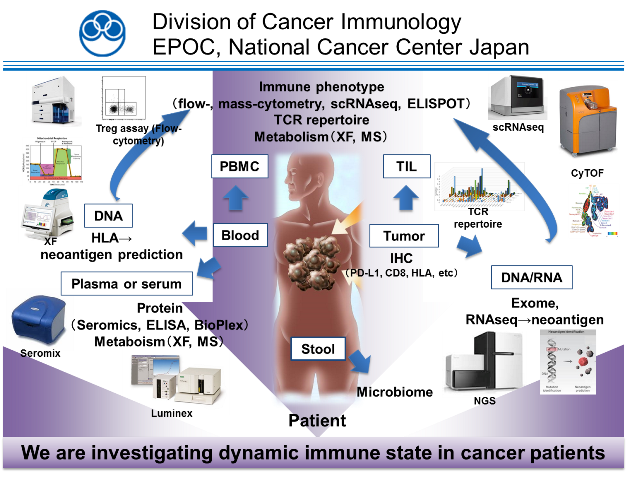Home > Organization > Division of Cancer Immunology
Group for Innovative Cancer TreatmentDivision of Cancer Immunology
News
- Apr. 28, 2025
- Update Publications list
- Apr. 28, 2025
- Update Members list
- Apr. 4, 2024
- Update Members list
- Jul. 1, 2023
- Update Members List
- May 22, 2023
- Update Members List
- May 23, 2022
- Update Members list
- Apr. 23, 2020
- Update Members list

